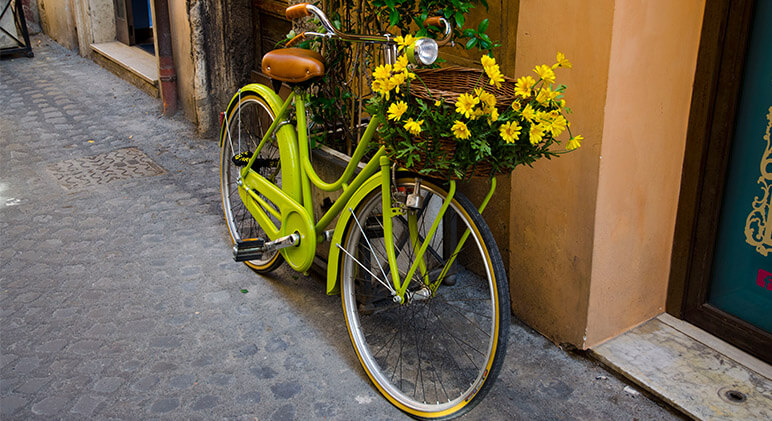
Chris and I got to talking about the major differences between France and the US. Even though Chris has lived in the US for more than a decade, he still gets shocked by how differently things are done in everyday life comparing to France. If you’re planning to visit France for the first time you’ll find that there are some major differences in the French etiquette – everything from the way they eat, the way they kiss, the way they party and much more! Read along for things to know before stepping foot in France!
Dining Etiquette
Mealtime is sacred to les Français. It’s an experience that should be enjoyed slowly, never rushed or eaten on the go. It’s a time to wind down and enjoy the company of those around you.
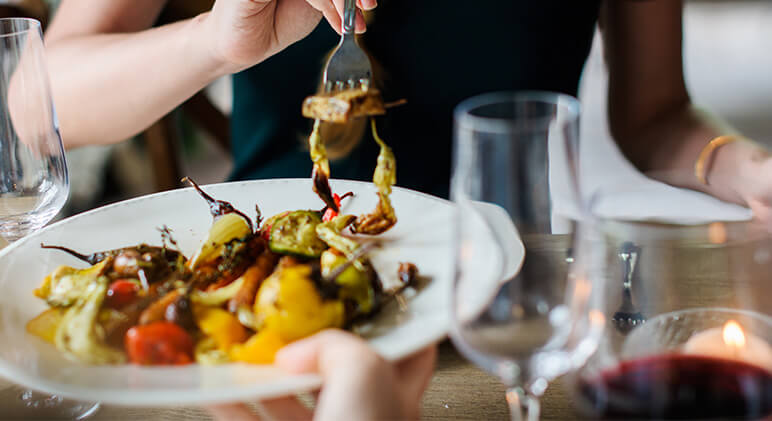
Courses
French people will never serve their salad, appetizer and main course together. Each course is savored and enjoyed. Therefore each portion is generally smaller to leave room for the next one. The order of the courses is also important. While in the US we might order a cheese platter as an appetizer, the French eat their fromage right before dessert. Here is the order of the courses:
- Aperitif is the pre-meal and usually features a drink. It can be something strong like whiskey, pastis or an Aperol Spritz or Champagne. This is usually accompanied by hors d’oeuvres.
- Entrée is the appetizer and can be anything such as oysters, foie gras or cold cuts.
- Plat de Resistance, the main course, usually includes a protein, such as coq au vin, a vegetable and a carb like pasta or potatoes.
- Salad is served after the main course which is definitely different than the US where salads are served at the beginning.
- Fromage, the cheese platter, is then passed around for each person to cut and place as much or as little on their plates as they like.
- Dessert can be iles flottante, éclair, or napoleon to name a few.
- Coffee. No French meal is ever complete without a cup of coffee.
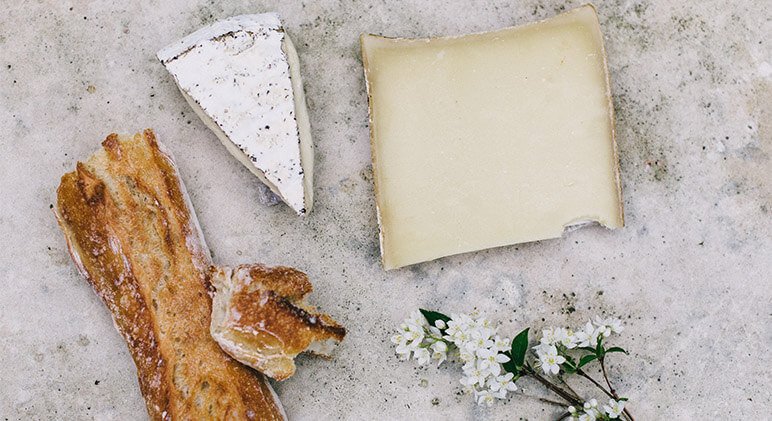
Fromage is served right before dessert
Wine
Wine is served at every meal except breakfast, even business meals – especially business meals. It is a rare thing for French people to drink a glass of wine alone after work or without a meal. From a young age, French people learn to appreciate the taste of their libations rather than just knock one back. Until 2009, the legal age to purchase alcohol was 16 – it’s 18 now – but it’s rare to get carded when purchasing alcohol.
Breakfast
Breakfast consists of coffee and bread or pastries. American breakfast as we know it is not very common and is known as Continental breakfast.
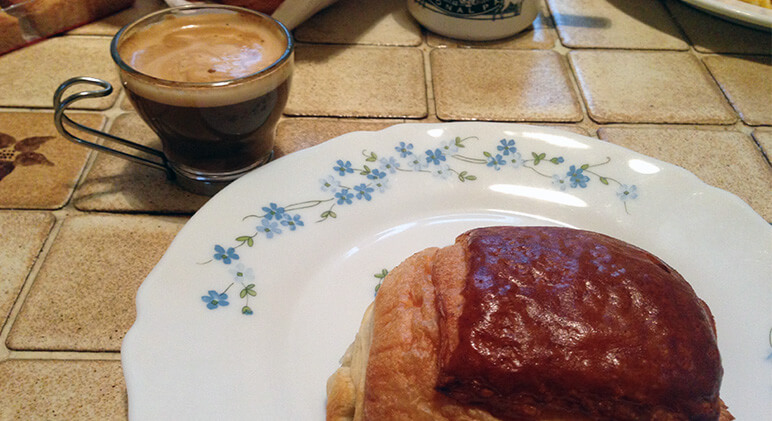
Coffee
Coffee is never purchased to go and the most common way to drink it is short and black. French people sit and drink it out of a real cup. Sometimes they will drink it standing but they never walk around with coffee cup in hand. In fact, for the first years that Starbucks opened coffee shops in France, they struggled to turn a profit. Whereas in other countries, where carryout orders are a large chunk of their business, Starbucks had to invest huge amounts to give its stores in France additional seating space.
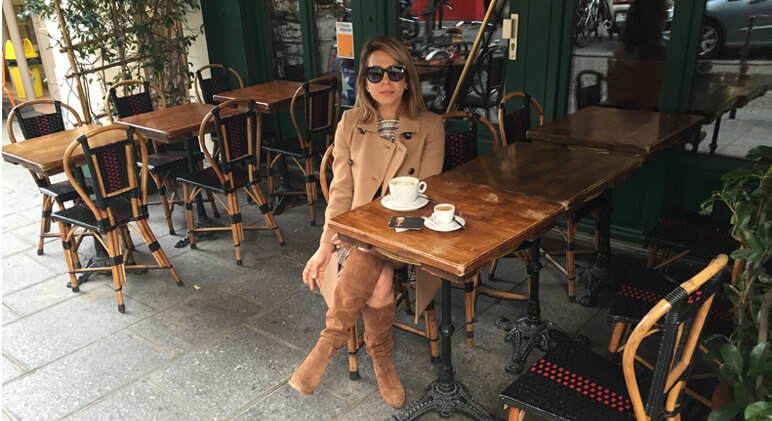
Bread
Bread is served at every meal and the French go to the local boulangerie in the morning to pick up that day’s freshly-made baguettes. When it comes to how the bread is eaten, there’s a bit of dissensus in tearing versus cutting bread. From my experience, it depends on the family. Some families find it rude to tear the bread and other families don’t bother cutting the bread with a knife. Just watch what the host does and follow suit!
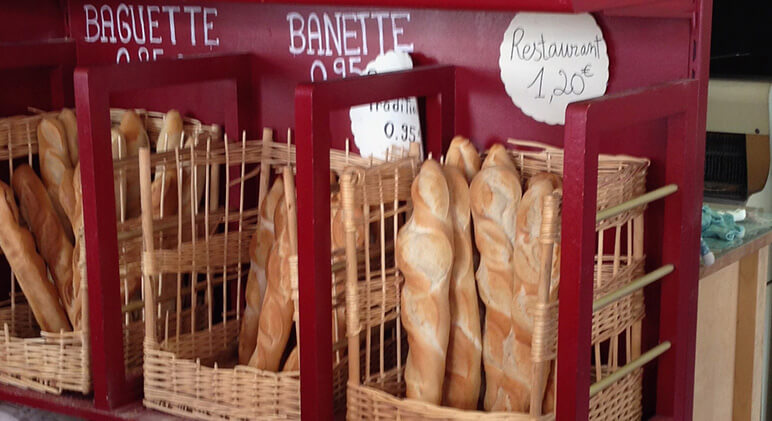
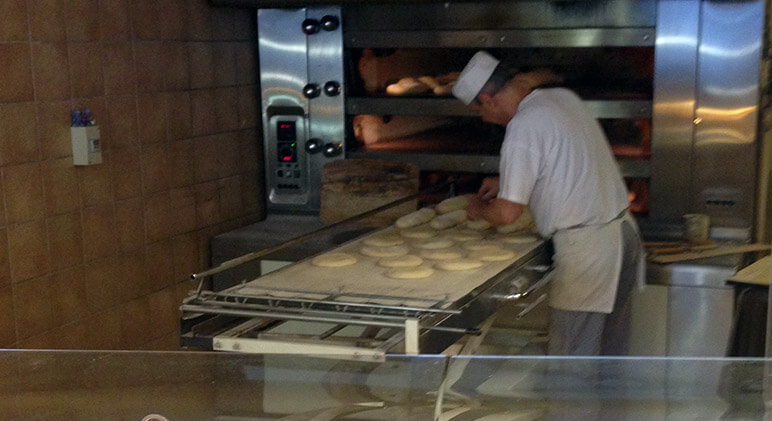
Party Etiquette
Gifts
Never show up empty handed to someone’s home. Flowers for the hostess and a bottle of wine are standard. There’s a saying in french, tu pousses toujours la porte avec les pieds, which translates to “you always push the door with your feet.” Essentially that means that your hands are full of gifts when you arrive to your host’s home that you have to use your feet to open the door.

Open Gifts Immediately
When you receive a gift, it is considered polite to open it right away as opposed to putting aside for later.
French women don’t serve their own wine
If you’re a woman and you’d like a refill you should ask for it. The French know a thing or two about dinner parties and hosting so this is generally not an issue as hosts generally ensure everyone is well-fed and well-served.
Kissing
There is no hugging in France. Kissing and shaking hands are the only ways to greet. You generally kiss the people you know and shake hands with those you just met. Men kiss each other as well if they are family members or very close friends. The majority of France gives two kisses, starting with a kiss on the right side but depending on the region, you may be giving three or even up to five kisses.
Faire la bise consists of placing your cheek against the other person’s cheek and making a kiss noise. Do not place your lips directly on their cheek.
French Etiquette
Greeting
Greet everyone with Bonjour or Bonsoir (after 6pm) along with Madame or Monsieur, for women and men respectively. If you are speaking with someone you just met, you will remain on a last name basis, such as Madame Joly.
Paying
Unlike the US, tipping is not common or expected in France. It is included in the staff’s salary and therefore transferred into the cost of the meals. Same with the cost of items; tax is already included in the listed price.
Sundays
Nothing is open on Sundays. Sunday is really a day of relaxation for the French. Stores and business close as well. You can, however, expect to find local farmer’s markets on this day! On weekdays between 12-2pm, most places close for lunch, including post offices and banks. It’s no wonder they’re able to enjoy a glass of wine for lunch every day.
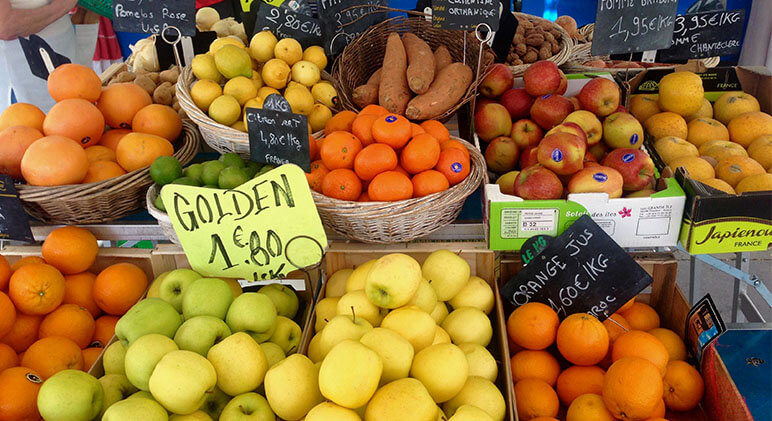
Nudity
Europeans have a more laid back perspective on nudity. It is not uncommon to find topless beaches. Commercials and movies typically also feature nudity quite regularly.
Customer Service
A cashier will generally not make a lot of small talk with customers. And servers won’t come to your table often to ask “Is everything ok?” It is considered rude and guests usually call the server if they need anything.
You
You translates into tu and vous. Vous is the formal expression and shows politeness and respects. Generally vous is used when you don’t know a person or when you are speaking to an elder. Tu is for those close to you. If you speak spanish, it’s like Tu and Usted and the same rules generally apply.
Attire
France is a very chic and there are some major no no’s when it comes to dressing. Flip flops, active wear (i.e. yoga pants) and pajamas are not to be worn outside of the beach, the gym and home respectively. Leggings are also considered out of style and a major faux pas. Check out this post on the secrets to dressing like a French girl!
Have you been to France? What were you most surprised to learn? Let me know!
About The Author
Related Posts
Everything You Need to Know Before Visiting Santorini
Dazzling panoramas, world-famous sunsets and pristine white, cliff-top villages – it’s no wonder…
25 August, 2017Tulum – Mexico’s Yucatan Peninsula Hottest Spot
As far as beach towns go, Tulum is in a category all of its own…
25 August, 2017

